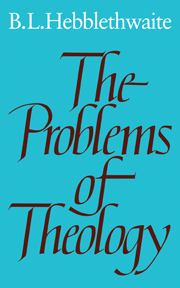4 - Theology and philosophy
Published online by Cambridge University Press: 30 September 2009
Summary
The word ‘philosophy’ means love of wisdom, and it is man's passion for wisdom and understanding that has driven him to ask far-reaching questions about the ultimate nature of things and the basic forms of human knowledge. Ancient philosophy was to a large extent religious philosophy. In India, for example, the six traditional philosophical schools of Hinduism include complex analyses of man's nature, his ultimate identity with the all-pervading spirit, and techniques of achieving release into mystical awareness of this identity. Similarly, the theory and practice of Buddhism constitute a non-theistic religious philosophy – of more limited scope, since many ultimate questions were held by the Buddha to be unanswerable. In the west, philosophy began in ancient Greece as a form of speculation about cosmology, but soon developed, in the thought of Plato and Aristotle, into all-embracing views of man and the universe as dependent on a single transcendent source and goal, called by Plato ‘the Good’ or ‘the One’ and by Aristotle, more intelligibly, ‘God’. This drive towards a philosophical monotheism led to the inclusion of theology in philosophy as one branch of metaphysics, which Aristotle defined as ‘the science of being qua being’.
Christian theology, by contrast, in its first few centuries, when Christianity's distinctive doctrines were taking shape, was allegedly based on a particular divine self-revelation through the history of Israel and the life, death and resurrection of Jesus Christ. Nevertheless the early Fathers of the Church found the Greek philosophical tradition, especially Platonism, both necessary and useful for the systematic formulation of Christian doctrine. There was always something of a tension between the God of the Bible and the God of the philosophers, however.
- Type
- Chapter
- Information
- The Problems of Theology , pp. 61 - 84Publisher: Cambridge University PressPrint publication year: 1980



